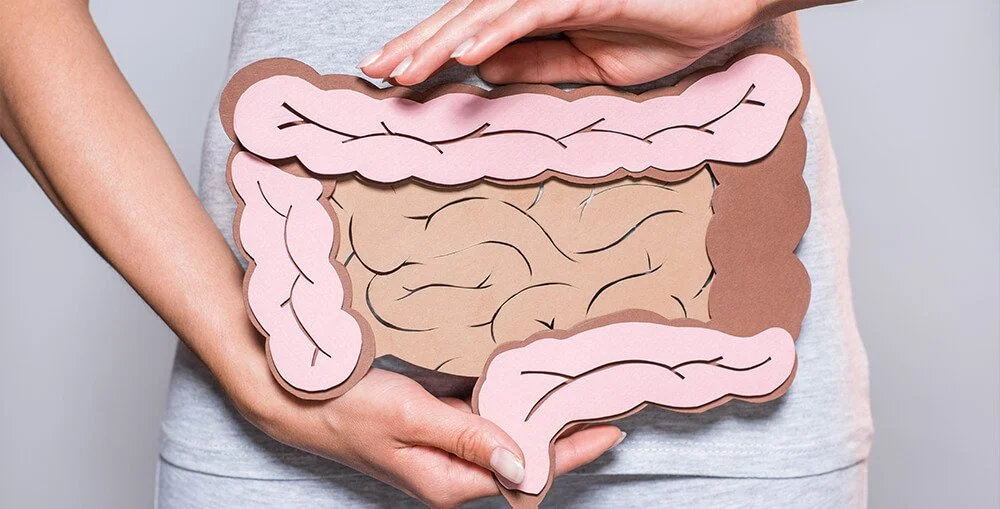The Connection Between Acupuncture and Digestive Health
Table of Contents Show
Quick Summary
This article delves into acupuncture and its efficacy in improving digestive health, exploring symptoms of poor digestion, and how stress, diet, and lifestyle impact gut health.
It highlights six key benefits of acupuncture for digestion: enhanced nutrient absorption, pain relief, regular bowel movements, gut microbiota balance, and stress reduction. The piece concludes with what to expect during an acupuncture session, emphasizing acupuncture's role as a holistic approach to digestive wellness.
Have you ever found yourself reaching for antacids more often than you'd like, battling bloating, or trying to tame your gut health's temperamental tides?
You're not alone.
In the bustling rhythm of Downtown Vancouver, where fast-paced lifestyles meet the rich culinary tapestry, digestive issues have become a common chorus.
Amidst this, acupuncture emerges as a melody of relief, a traditional tune with a modern resonance. A recent story that captures our attention involves a client who, for this purpose, we will call Bob!
A professional plagued by persistent digestive discomfort. Bob works hard, plays hard, and loves the quick bites from Davie Street's tasty options.
Like most, Bob has turned to traditional methods when he feels bloated. While this provided him with temporary relief, acupuncture harmonized Bob’s digestive health, offering a deeper, lasting solution.
This narrative isn't unique, and while Bob is our alias, the gut health issue is a testament to acupuncture's potential to transform digestive wellness.
We want you to read and come with us as we explore this topic further; we'll delve into the symptoms signalling digestive distress, how acupuncture and Chinese medicine provide solace, the science-backed benefits, and the holistic importance of this ancient practice in our contemporary quest for well-being.
What are the symptoms of bad digestive health?
Understanding the symptoms of poor digestive health is a crucial first step in navigating the complexities of our well-being.
Symptoms can range from subtle to severe and serve as our body's distress signals. We'll start by unravelling the general symptoms that may indicate digestive discord, such as recurring stomach upset, bloating, gas, heartburn, constipation, or diarrhea.
These are not just discomforts but messages from our bodies, asking for attention and care.
Common Digestive Problems People Face Today
In today’s fast-paced world, our digestive systems often bear the brunt of our busy lifestyles, leading to various uncomfortable conditions.
Acid Reflux manifests as a burning sensation that ascends from the stomach to the esophagus, a sign of digestive distress often linked to diet and stress.
Irritable Bowel Syndrome (IBS) is another common visitor, bringing along a suitcase packed with abdominal pain, bloating, and a roulette wheel of bowel movements.
Meanwhile, Constipation and Diarrhea present two sides of digestive discomfort, each with its own set of challenges, from hard, infrequent stools to urgent, watery bowel movements.
Beyond these, Inflammatory Bowel Disease (IBD), which includes conditions like Crohn’s disease and ulcerative colitis, reveals the more severe spectrum of digestive disorders, characterized by chronic inflammation of the digestive tract.
Impact of Stress, Diet, and Lifestyle on Digestive Health
Our digestive health is intricately tied to our daily habits and emotional state. Stress, the shadow that follows us from work deadlines to personal challenges, can significantly disrupt our digestive system, leading to symptoms such as indigestion and altered bowel habits.
The diet plays a starring role in this digestive drama, with processed foods, sugars, and unhealthy fats contributing to discomfort, while a lack of fibre can halt the digestive process in its tracks.
Meanwhile, a sedentary lifestyle or erratic eating patterns can further exacerbate these issues, highlighting the need for balanced, mindful living to maintain digestive harmony.
Is Acupuncture Safe for Digestive Issues?
Navigating the waters of alternative treatments for digestive issues, acupuncture emerges as a beacon of safety and efficacy.
It’s a practice steeped in centuries of tradition, yet it aligns gracefully with the principles of modern holistic health. When administered by a skilled practitioner, acupuncture holds a remarkably low-risk profile, making it a safe harbour for those tossed by the stormy seas of digestive discomfort.
There are some potential risks and side effects associated with acupuncture for digestive issues:
Soreness and minor bleeding or bruising at the needle insertion sites
Rare cases of feeling lightheaded or tired after a session
Potential interference with a pacemaker if the acupuncture involves applying mild electrical pulses to the needles
Increased risk of bleeding or bruising for those with a bleeding disorder or taking blood thinners
Potential to stimulate labour in pregnant women, which could result in premature delivery
Overall, the potential side effects are minimal and transient. At the same time, the benefits of acupuncture for digestive issues, such as improved digestion, reduced discomfort, and regulated bowel movements, appear to outweigh the risks for most individuals.
Exploring acupuncture for digestive health, the text illuminates its efficacy in alleviating bloating and gas, positioning it as a safer, holistic alternative to medication.
6 Reasons Acupuncture Helps With Digestive Function
While acupuncture can support health in numerous ways, these six reasons are particularly pivotal for enhancing digestive function.
They stand out not just for their effectiveness but for collectively offering a holistic approach to improving digestive well-being. These reasons are among many chosen for their direct impact on our clients' common issues and the positive feedback we've received in clinical practice.
1. Improved Digestion and Nutrient Absorption
Acupuncture is believed to stimulate digestive functions by enhancing blood flow to the digestive organs, leading to more efficient breakdown and absorption of nutrients. This improved efficiency can increase your energy levels and help your body to utilize the nutrients in your food more effectively.
2. Reduction in Gastrointestinal Discomfort and Pain
Through the targeted insertion of needles, acupuncture can help reduce common digestive discomforts such as bloating, gas, and abdominal pain. This is achieved by encouraging the release of endorphins and other natural painkillers within the body, providing a natural form of pain relief.
3. Regulation of Bowel Movements
For those experiencing irregular bowel movements, acupuncture may offer a natural solution. Stimulating specific points can help regulate the function of the digestive system, promoting regular bowel movements and alleviating symptoms of constipation and diarrhea.
4. Balancing Gut Microbiota
Recent studies suggest that acupuncture can influence the gut-brain axis, potentially leading to a healthier balance of gut microbiota. This balance is crucial for digestion and overall health, impacting everything from the immune system to mood regulation.
5. Stress Reduction and its Impact on Digestion
Stress is a common culprit behind digestive issues. Acupuncture is known for its stress-reducing properties, which can, in turn, positively affect the digestive system. By lowering stress levels, acupuncture can help alleviate stress-induced digestive problems like IBS and acid reflux.
6. Complementary Approach to Conventional Treatments
Acupuncture can serve as a complementary approach alongside conventional treatments for digestive issues. It offers a holistic option that targets the root of digestive discomforts without the side effects often associated with medication, enhancing the overall effectiveness of treatment plans.
Acupuncture can improve digestion and nutrient absorption, enhancing overall well-being.
What to Expect During an Acupuncture Session
Embarking on your first acupuncture session can feel like stepping into a new healing world. Let's demystify the process, focusing on what you can expect during a session to address digestive issues.
Typical Acupuncture Session for Digestive Issues
Your journey begins with a consultation, where your practitioner gets to know your health history and digestive challenges. From there, they'll devise a personalized treatment plan.
During the session, you'll relax as fine, sterile needles are gently inserted at specific points to target your digestive concerns.
This process is designed to rebalance your body's energy and address the root causes of your discomfort. Sessions typically last 50 to 70 minutes.
Post-treatment, expect valuable guidance on dietary and lifestyle adjustments to enhance your digestive well-being further.
This holistic approach targets your symptoms and promotes overall health, marking the beginning of a journey towards balanced digestive health.
Safety and Potential Side Effects to Consider
Acupuncture is widely recognized for its safety and minimal side effects when performed by a trained and certified practitioner.
The most common sensations include minor soreness or bruising at the needle sites. Some individuals might experience brief lightheadedness post-session, but these side effects are generally mild and transient.
It's crucial to communicate your health background and any medications you're taking to ensure the safest and most effective acupuncture experience.
It offers a holistic solution to digestive discomfort, reducing the need for medication.
FAQ
How often should you do acupuncture for digestive issues?
There is no given number of times you should see an acupuncturist to treat digestive issues. The frequency can vary depending on the individual and their specific conditions. Speak with your acupuncturist, and after each treatment, determine how you are feeling.
How should you feel after acupuncture for digestive issues?
You should typically feel relaxed and rejuvenated after an acupuncture session for digestive issues. You could also feel tired, a bit groggy and not overly stimulated. So, it is best to avoid vigorous exercises after treatments.
How long do the effects of acupuncture for digestive issues typically last?
The effects of a single acupuncture session for digestive problems can last anywhere from a few days to a week or more. However, ongoing, regular acupuncture treatments (e.g. once or twice per week) may be needed for chronic or more severe digestive conditions to maintain the beneficial effects.
Can acupuncture for digestive issues be combined with other treatments?
There are multiple options for helping you deal with digestive issues; combining acupuncture with other TCM therapies like moxibustion can help improve, but combined with dietary and lifestyle changes may also be beneficial for addressing complex digestive problems.
Conclusion
In exploring acupuncture as a remedy for digestive issues, we've traversed from understanding common digestive ailments to recognizing how stress, diet, and lifestyle impact our gut health.
We've unveiled six compelling reasons acupuncture is a beacon of relief and balance in digestive wellness, emphasizing its holistic approach.
This journey underscores a shared human experience—navigating the complexities of digestive health. Acupuncture stands out as a holistic pathway, offering a bridge between traditional wisdom and contemporary needs. It advocates for a harmonious balance within, reflective of the natural world around us.
We hope at this point, you can start to imagine the relief of all those digestive ailments and how acupuncture gently nudges your nervous system, coaxing your digestive tract's muscles to find their rhythm again, easing constipation, and calming the turmoil of diarrhea.
Embracing acupuncture might be the key to unlocking a more comfortable, balanced digestive journey. Acupuncture helps digestive issues by stimulating the nervous system to regulate gut motility and function. It can improve symptoms like constipation, diarrhea, nausea, and bloating by stimulating or relaxing the digestive tract.
As we continue navigating our health journeys, let's remember the value of holistic care in achieving wellbeing.
If you have any further doubts or questions regarding this subject or another treatment, contact one of our experienced Acupuncturists or Registered Massage Therapists here at West End Wellness Clinic. You can either give us a call or make an appointment.
Disclaimer: Please remember this article is for informational purposes only and should not replace professional medical advice. Please consult a healthcare provider or someone with the correct qualifications before starting any new exercise or treatment program.




